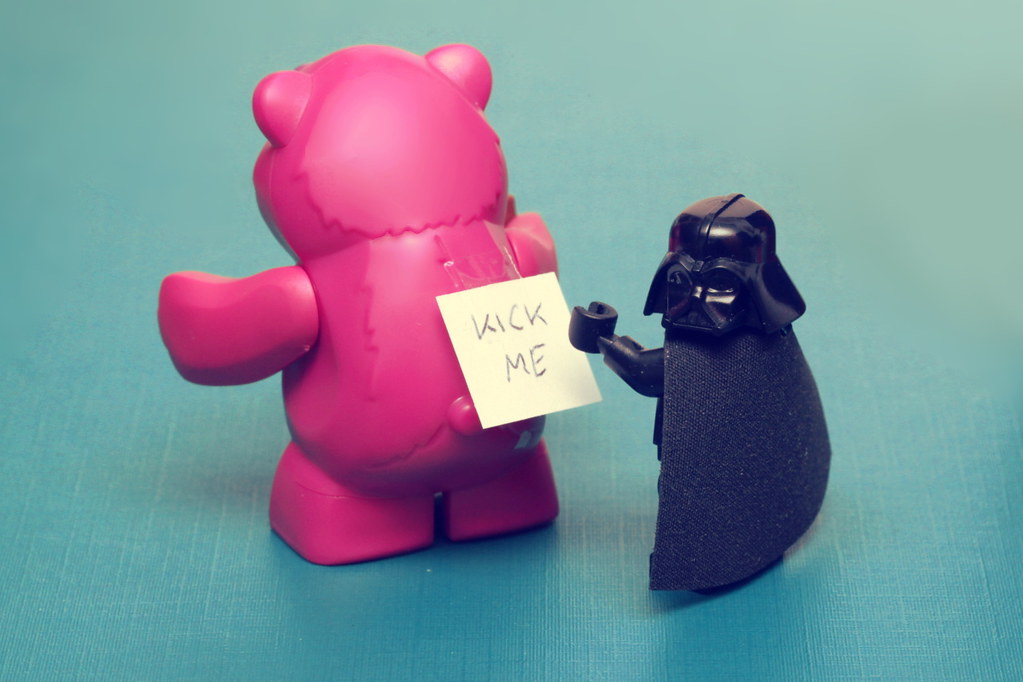interviews
Your Memory Is Fiction
Jessica Andrews, author of "Saltwater," on language as a means of control

Jessica Andrews’s debut novel, Saltwater, is composed in numbered fragments. Andrews explained to me that one of the reasons she wanted a non-chronological structure was very much to do with memory as shrapnel. “I was interested in…how you carry your history, your lineage with you even though you’re not conscious of it all of the time.”
The protagonist in Saltwater, Lucy, moves to a cottage in the west of Ireland that was left to her by her deceased grandfather. Interspersed among the plot of Lucy’s time there are histories of her parents, the conception of a child, Lucy’s turbulent adult history in a chaotic London. The book is gestational. It reads as if it is building dimension rather than story, and at a languid, cellular pace. It’s about motherhood and memory; in other words, it’s about the fragmented self. “Memory runs her needle in and out, up and down…” wrote Virginia Woolf in Orlando. “We know not what comes next, or what follows after. Thus, the most ordinary movement in the world, such as sitting down at a table and pulling the inkstand towards one, may agitate a thousand odd, disconnected fragments.”
Andrews wrote Saltwater while living in a cottage in the west of Ireland, left to the family by a late grandfather. The book draws heavily on autobiographical elements, which the author has been forthcoming about, and which is, in a way, part of the experiment. In both structure and subject matter, Saltwater asks: What is remembered and what is created and what, really, is the difference?
I reached Andrews at her current home in Spain to discuss womanhood, language, and most of all, the fictions and nonfictions of memory.
Lucie Shelly: There’s a beautiful line in the book about “language as a place to put your feelings.” Figuring out how we feel about things is a means of controlling our feelings, I suppose. I’m interested in your thoughts on language as a kind of control.
Jessica Andrews: I guess language is a form of control in that it allows you to name things. When you’re feeling things that you don’t have a vocabulary for, that makes them feel really difficult. As a writer, to be able to articulate my life or feelings has been really powerful for my mental health. As a reader, when you read something that resonates with you that maybe you haven’t been able to put into words, that’s a really illuminating thing. In the book, Lucy, the main character, has a brother who’s born deaf. My younger brother in real life was deaf. That gave me an interesting view of language from when I was very young. There was a really big emphasis on the importance of language and being able to communicate in my house. I have the sense that there must be some kind of connection there—now I work with words and language and that’s the thing that I’m best at. I feel there must be a link.
And I think as well, it’s really useful to be outside of somewhere in order to write about it, to get a different perspective. It helps to be removed from things, to be in a different culture and a different language.
LS: The book has this very apparent structure, it’s in numbered sections. In terms of organizing the language or narrative, or the communication of story, how did you arrive at that structure?
As a woman, my experience of the world very much comes through my body.
JA: I was interested in exploring this idea that you carry all of your experiences inside of you. Even though they’re not all happening at the same time, at every point in time you’re bringing all of those experiences with you. So that, and how you carry your history, your lineage with you even though you’re not conscious of it all of the time. That’s one of the reasons why I had this non-chronological narrative where you’re weaving in and out peoples’ lives. I wanted to emphasize the resonance of the threads. And also, it’s kind of to do with the body. I felt like, as a woman, my experience of the world very much comes through my body. It’s always the first thing that speaks or that I’m thinking about. If I wanted to talk about bodies to do it in a fractured way made the most sense. It’s not a smooth cohesive narrative and it doesn’t always make sense. I felt like the form reflected my feelings.
LS: It’s interesting that you’ve brought up a sensation of fracturing in relation to the body—I felt the book explored the disconnects between mind and body. The theme of motherhood and the mother-daughter relationships circled some of these questions. The idea of producing a child, and then having to separate this thing that was once very much within the body.
JA: Yeah, I was thinking a lot about the intimacy of a mother and child relationship, especially a child, and there’s almost an eroticism to it, you know, there’s so much skin and touch, and as you get older all these barriers come up. It was the end of winter and I had a t-shirt on, and she said something like oh I haven’t seen your arms for such a long time. Your parent knows your body so intimately for such a long time and then suddenly they don’t. My relationship with my mother is a very sensory one. The smell of her makeup or the product she uses or the freckles on her skin, it’s all these really microscopic, childlike details that you absorb so much during your childhood. And then as you get older, you are more distant and those things are so intangible, but there’s so much within your memory. I was interested in the sense of loss that comes with that.
My grandma died when I was very young and my mum always says things like, “your hands really remind me of her.” These really small bodily details that connect you to people, but we almost break that connection.
LS: Moving away from motherhood and fragmentation, another theme I’d like to tease out is class. Do you consider yourself a writer voice of a certain class? Were you concerned with portraying the subtleties (and more tangible struggles/oppressions) of class difference in your novel?
JA: I grew up working-class and I am the first person in my family to go to university. I struggled at uni, both financially and academically, because I didn’t feel like I had anything of worth to say. It was only later, when I graduated and started reading more widely and meeting people who share my values, that I began to develop the vocabulary to understand that the ways in which I felt wrong were structural and systemic, and did not come from inside me. I wanted to give a sense of this in the novel by linking the ways in which Lucy feels wrong to bigger things outside of her, to try and reflect the intersection of the personal and the political. Writing about class is a delicate balance—it felt important to me to write about the joy of growing up in Sunderland, without romanticizing the struggles.
LS: You’ve mentioned a number of people in your family in relation to the story, and I’m afraid of going into lazy or narrow-minded territory here, but there is a significant autobiographical influence to the story. The book is a novel, it is fiction, but it contains significant histories of a mother, grandmothers, a grandfather. Did you feel conflicted about genre, about writing fiction or nonfiction?
JA: It’s fiction but it is very much rooted in my own life, and I feel like I’ve been quite honest about that. If I said that it was more fictional than it really is then I wouldn’t really be able to speak. I felt like I would be doing myself an injustice and I wouldn’t be able to speak about things like class or gender roles with the same transparency. One of the reasons it’s fiction and not memoir is because I felt like fiction gives you more power, perhaps. So much of the novel is about Lucy claiming her own power. You’re not bound in the same way with fiction, you can manipulate the world so that people can see it from your perspective.
Your memory is a fiction, and your identity is a fiction.
I suppose if you’re thinking about memory as a narrative anyway, memory is how we make sense of our lives. To me, the novel feels true but it’s not. And I feel like to me now the number four is true but it’s actually not. All the things didn’t happen, but the emotions of the story are really close to the emotions of my life.
Another element of rooting a story in truth is to do with protecting people. That was something I found hard when writing. To what extent am I allowed to write something close to the truth. That was an interesting exercise for me as a woman, or absolutely in my particular family dynamic. Your role is often to protect people and to care for people and to look after people and to write something closer to the truth, felt like an exercise in being okay with, maybe I don’t have to protect people all the time. And maybe that’s more important than feeling like I have to protect people—that’s something that I see quite actively focused on in the book, how you can never really protect anyone.
LS: I’d love for you to talk a little bit more about memory as fiction and even identity as fiction. We have to be a certain kind of person for certain people—as you say, sometimes that’s a protector, or even a mother on the days when we don’t feel like being mothers.
JA: Yeah, your memory is a fiction, and your identity is a fiction. For example, when people talk about horoscopes. People talk about your star sign and you have these personality traits, and often you feel like they’re true, but you’re also just clinging to these markers of yourself because it’s difficult to get a sense of what your identity really is. So if someone tells you you’re very good, you’re sort of performing that thing. It’s self-fulfilling, you write a narrative of the way that you want to be seen. But in terms of memory, remembering—there is an episode in the book where a man shows his penis through the window. That’s actually something that happened to me when I was a teenager, but I was telling the story the other day to my partner and I told him the version that was in the book. So I was like, I was with my friend and this man drove up to the bus stop and showed his penis. But then, about five minutes later, I remembered that wasn’t actually what happened. In the real version of the story, I was alone, and I was really scared. And I’d forgotten, because I’ve written this other version. Then I was thinking, did I protect myself through my own memory. Did I give myself a version where I was with another person, and it was funny and it wasn’t scary.
LS: This also makes me wonder—if memory can be a kind of fiction or creation, how useful is the literary distinction of fiction and nonfiction? On some level, I find those distinctions superfluous or for the benefit of marketing and the critics. Did you ever find yourself hung up on those lines when you were writing, or afterwards?
My relationship with writing is that I will always write in a way that’s semi-autobiographical, because that has more resonance for me.
JA: I’m trying to write about this in my next book, actually. I’m interested in why something is seen to have more or less worth if it’s true? Why do we have those distinctions if the author doesn’t know what’s true anyway? My personal relationship with writing is that I will always write in a way that’s semi-autobiographical, because that just has more resonance for me and I can write about it in a more powerful way. I’m interested in interrogating that. The Why?
LS: Absolutely. To say that something is purely imaginative is such a huge statement, you’re always writing from how you have seen the world.
JA: It’s true, and if you write a memoir you manipulate things. You put it in a certain narrative structure. You emphasize things. It’s not the truth. I feel like I’m probably always going to be thinking about this.
LS: It’s strange that we never see poets having to contend with this question of, like, is it fiction or nonfiction, or how much is true? The work is just the work. Your structure is somewhat poetic, can you talk about your process for this book? And your writing process in general?
JA: I was writing a version of the story but at first it was much more fictionalized, there was much more distance from me. It just wasn’t really working, it didn’t have much life in it. So then I scrapped the idea of trying to write a novel, and I thought I’m just going to sit down every day and write what I feel like writing. I did that, and then I saw the story. I was writing in three separate strands. So I wrote a more chronological story of Lucy’s life in one section, and then I wrote the parts that are set in Ireland in another section, and then I wrote the more fragmented story about the baby in another section. Then, I was still in Ireland, and my neighbor had a wine business so he had this big industrial printer, so he let me print the whole thing out. And then I cut it up with scissors, physically. I had it all over his kitchen floor. And then I kind of put sections into piles, like this part is about this thing, and that’s kind of how I was able to find the structure. This sounds cheesy, but it was more like a piece of music rather than something with a straight beginning, middle, and end. It really helps me to see things, and have things physically printed out and
LS: In terms of your daily practice, are you writing in a similar way to how you were during the first novel?
JA: I think I’m trying to. I’m trying really hard to reconcile the balance. All my emotional energy goes into a project when I’m in it, which was much easier before when I lived in Ireland I didn’t know anyone. I didn’t have anything else to do but now it’s harder because obviously I’m doing other writing work I’m promoting the first book, I’m in a relationship now. So it’s finding the balance of still being able to have the space, but to also be able to balance things in your life. The first book was quite an extreme proces. I feel like, maybe until you write a second book you don’t really know what your processes.









